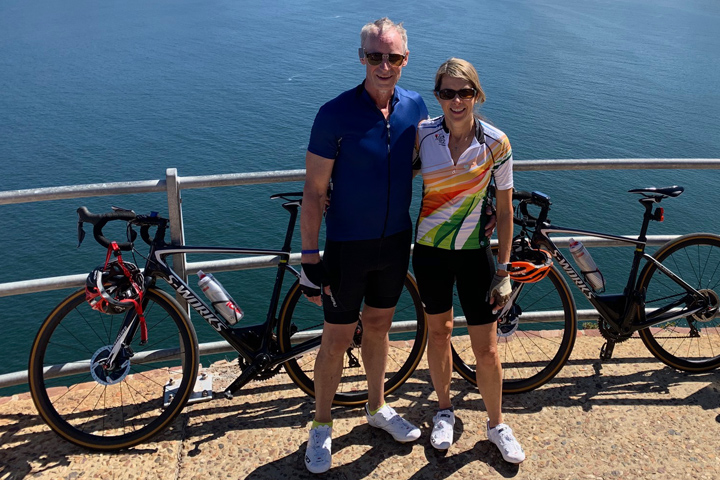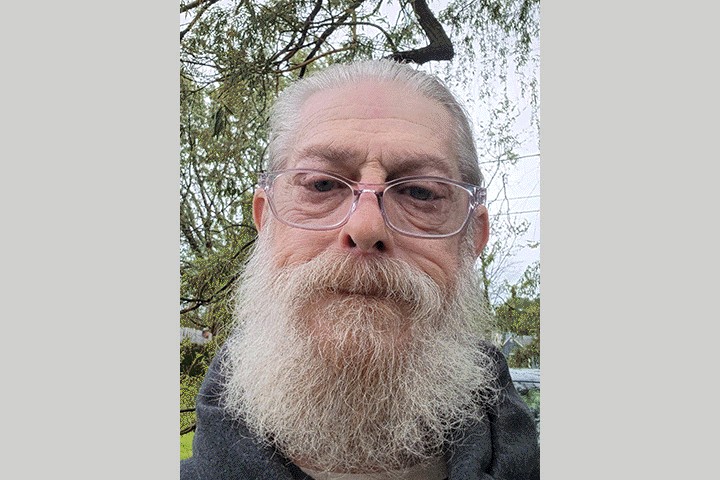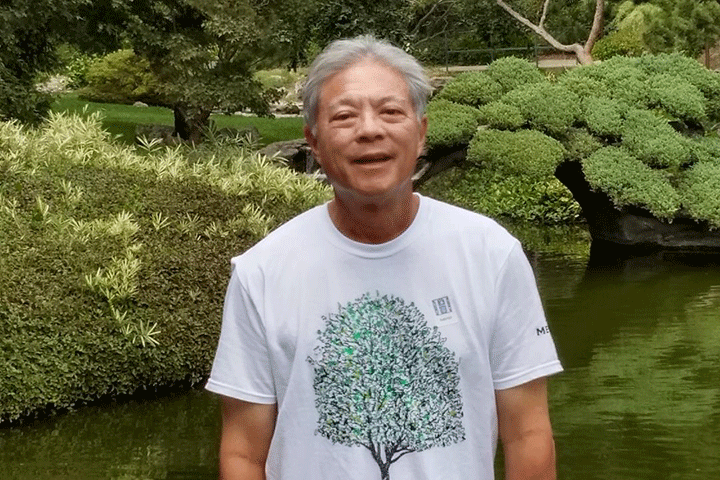Molecular Profiling Leads to Non-Standard Pancreatic Cancer Treatments

- Research leads to molecular profiling before treatment
- First treatment with a clinical trial
- A series of non-standard treatments including targeted therapy
- SBRT, Whipple surgery, and more experimental drugs
I would like to share our story of hope, perseverance, resourcefulness, and strength.
On February 16, 2016, our lives changed forever. At 52 years old, my husband Rick was diagnosed with stage IV pancreatic adenocarcinoma with a 5 cm tumor on the head of his pancreas and extensive liver metastases. Rick was a healthy, active individual with no real risk factors for pancreatic cancer. He had suffered from digestive issues for many years but had never been diagnosed with what we now believe was chronic pancreatitis. He experienced weight loss, stomach pain, and back pain over the years but we never imagined this devastating diagnosis.
Research, Molecular Profiling, then Experimental Treatments
Once Rick was diagnosed we began our research and investigation. Very quickly we were led to molecular profiling. This revealed several genetic mutations in his cancer. Of note, he had a ROS1 fusion rearrangement, somatic BRCA2 mutation, and the absence of KRAS.
Rick began his first line treatment in our hometown of London, Ontario, Canada, with Dr. Stephen Welch at London Health Sciences Centre. He enrolled in a clinical trial combining an investigational drug called demcizumab with gemcitabine and Abraxane. This began the first of a long list of treatments that Rick has endured. Through extensive research, resourcefulness, travel, and forward thinking, Rick has taken “standard of care” to the next level. Rick completed 15 cycles in this trial before progression.
Continued research pointed us toward liver-directed therapy. This wasn’t supported or made available to us locally. Rick chose to begin a series of liver-directed trans-arterial chemoembolization (TACE) treatments at the University of Frankfurt in Germany over the next five months. He combined it with systemic FOLFIRINOX at our local hospital. After completing six TACE treatments and five FOLFIRINOX treatments, Rick’s disease somewhat stabilized and his liver responded. During this period, we engaged Perthera to perform proteomic analysis and combined this with our previous molecular analysis. They provided a weighted list of potential future treatment options.
With his cancer somewhat under control, he decided to participate in a targeted therapy clinical trial targeting the rare ROS1 fusion rearrangement with a single agent tyrosine kinase inhibitor, entrectinib. It had shown promise in patients with a range of cancers and was less toxic than chemotherapy. Under the care of Dr. Michael Pishvaian (then at Georgetown Lombardi Comprehensive Cancer Center, in Washington, D.C., now at Johns Hopkins Sibley Memorial Hospital in Washington ) Rick spent seven months on this trial, feeling well and back to working, travelling, and participating in many sports. Rick managed the side effects well, but at the beginning they were intense.
Whipple Surgery, and More Experimental Treatments
With this good response and stable disease and, of course, continued research, Rick was able to undergo Whipple surgery at Johns Hopkins Hospital (Baltimore, Maryland) with Dr. Christopher Wolfgang (now at NYU Langone in New York) in the summer of 2017. Prior to the surgery, he recommended Rick undergo stereotactic body radiation therapy (SBRT) using CyberKnife on the primary pancreas tumor and Y90 radioembolization to the liver tumors. It was a tough summer with these radiation treatments and recovery from the Whipple, but Rick persevered with no complications.
After Whipple surgery, Rick continued with another targeted therapy for ROS1. He remained stable for a few months but he eventually progressed with the detection of lung metastases. Our continued research into ROS1 rearranged cancers led us to a thoracic oncologist, Dr. Alice Shaw at Massachusetts General Hospital (Boston, Massachusetts). She specializes in ROS1 rearranged lung cancer and in April 2018 agreed to accept Rick as a patient. She recommended Rick try a next generation experimental ROS1 inhibitor called lorlatinib. It was being used in clinical trials for lung cancer patients, and she obtained special permission from Pfizer (the maker of the drug) to put Rick on a single person compassionate use trial.
Rick responded immediately, experiencing a significant drop in CA 19-9 and tumor regression. After close to a year on this targeted therapy his scans are mostly stable and we remain hopeful for a continued durable response. This targeted therapy approach has allowed Rick to remain extremely active and able to enjoy travel, sports, and cycling. We even celebrated our 30th wedding anniversary this past November, an anniversary we honestly did not think we would see three years ago.
We are so grateful to Dr. Shaw and her team for obtaining special access and working with our local oncologists, first with Dr. Welch and now with Dr. Mark Vincent, who Rick began seeing in 2018. We anticipate that lorlatinib will stop working for Rick at some point, so we are continuing to research other clinical trials, including immunotherapies and other targeted therapies based on updated molecular analysis.
Our Message for Other Patients
My message for newly diagnosed and previously treated patients is to learn as much about your cancer as possible: get molecular testing done and explore treating your cancer based on your tumor biology. We try to stay one step ahead of the disease by researching and reading and connecting to other patients and doctors to find and combine non-standard treatments or trials that have shown promise.
Is the cancer gone? No, but when living with advanced cancer we celebrate every day that we are winning or surviving. Rick is an incredible fighter and truly inspiring. As we celebrate three years since diagnosis, we continue to thank God for his miracles and live with gratitude for every day.
Since this story was published, Rick passed away from pancreatic cancer. We are deeply appreciative that he and Shelley were willing to share his story of searching for the latest treatments, so that other pancreatic cancer patients and their families can learn about their options.






